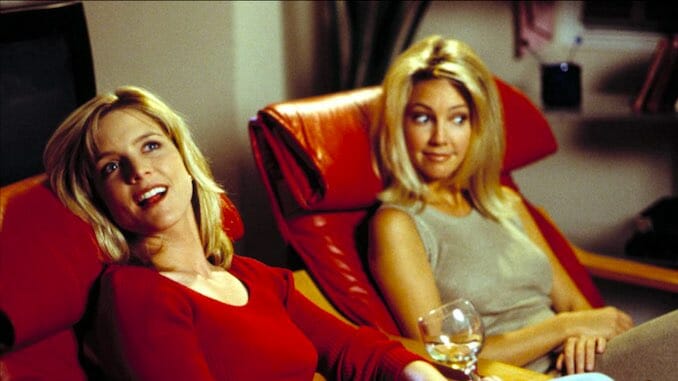TV Rewind: Melrose Place at 30 – How It Changed the Game for Nighttime Soaps
Photo Courtesy of Fox
Editor’s Note: Welcome to our TV Rewind column! The Paste writers are diving into the streaming catalogue to discuss some of our favorite classic series as well as great shows we’re watching for the first time. Come relive your TV past with us, or discover what should be your next binge watch below:
![]()
On July 8, Melrose Place—Fox’s spin-off of the original Beverly Hills, 90210 that served as fictional voyeurism for what life was most definitely like when you’re a young, attractive Angeleno attempting to establish yourself—will turn 30. This means that it will, officially, be older than its once-targeted demographic.
The Darren Star-created, Aaron Spelling-produced series is, at best, now considered a guilty pleasure remembered for its camp, cat-fights, and chokers. But, as Lelaina (Winona Ryder) famously said in the 1994 essential Gen X movie Reality Bites, “Melrose Place is a really good show.”
“Melrose Place is a silly show and yet also… it’s a really good show, and all kinds of people probably secretly cared about it in addition to the ones who openly did,” emails Heather Cocks who, with writing partner Jessica Morgan, is an author and runs Go Fug Yourself, the fashion and pop culture website that frequently mentions the duos’ love for programs that are part of the Spelling-verse.
Morgan adds via email that Melrose’s fame, or at least infamy, was so big that there’s even an episode of Seinfeld where Jerry Seinfeld’s eponymous alter ego cops to being a fan, even though he doesn’t look or act the part.
This was because, once it found its groove, Melrose Place figured out its place in pop culture and leaned in. Hard.
The pilot episode mostly focuses on Courtney Thorne-Smith’s Alison Parker, a Type A wanna-be ad exec who thinks herself worldlier than she is (and who wore a fuzzy blue bathrobe with a celestial print that I, to this day, still remember). She’s in desperate need of a roommate to share her shockingly affordable pool-side pad in an apartment complex full of other hot, mildly interesting 20-somethings trying to find themselves.
Although nothing truly revolutionary actually came from their characters or plot points as the series progressed, the Melrose pilot also probably deserves some recognition for giving ample screen time to a Black tenant (Vanessa A. Williams’ aerobics instructor Rhonda Blair) and attempting to normalize the existence of a gay character (Doug Savant’s Matt Fielding). And, although it has storylines that are now familiar to anyone invested in the world of nighttime soaps—Alison’s lecherous boss tries to get her to sleep with him and she doesn’t know if filing a sexual harassment complaint will hurt her career; bad boy Jake Hason (Grant Show) is trying very, very hard not to have a relationship with a teen-ager (Jennie Garth’s poor rich girl Kelly Taylor from 90210)—we’re also supposed to try to care that boring marrieds Jane (Josie Bissett) and Michael Mancini (Thomas Calabro) can’t find time for one another, and that there may be sparks brewing between Alison and her eventual roommate, Billy Campbell (Andrew Shue).
“At the beginning, it was earnest because it was ‘this is what it’s like to be a 20-something making your way in the world’,” says journalist Rob Owen, author of Gen X TV: “The Brady Bunch” to “Melrose Place”.
Go Fug Yourself’s Morgan is more blunt, writing that “everyone I know thought/thinks the first season of Melrose is mostly a boring mess. We enjoyed [the show] because the eventual miniskirts and the catfights were incredibly entertaining and far superior to its first season.” Cocks scoffs that, “I remember one of the big plots being whether Andrew Shue’s character, Billy, would *gasp* take over his dad’s carpet store or keep driving his cab.”
-

-

-

-

-

-

-

-

-

-

-

-

-

-

-

-

-

-

-

-

-

-

-

-

-

-

-

-

-

-

-

-

-

-

-

-

-

-

-

-








































